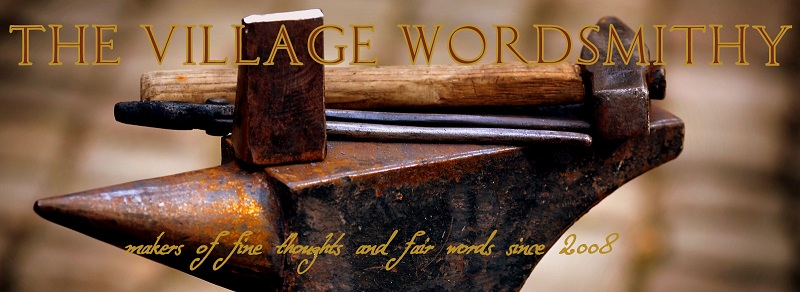I'm reading a book now called "The Forgotten Queens of Islam" by Fatima Mernissi (University of MN Press 1993) and Ms. Mernissi, in explaining the difference between levels of power in the early Islamic state, has this to say on the subject of freedom and, by association, writing:
"In Arabic words like hurr (free) and hurriyya (freedom) have little to do with the modern human rights connotation....Hurr also has to do with the idea of resistance, since one says of a bride that she has spent the night hurra if she was not deflowered on her wedding night, since her husband could not penetrate her. This idea of resisting, of concentrated energy contained in hurr, is evident in the word harrara, which means 'to write.' When you decide to write a text, what you are in fact doing is liberating words (tahir al-kitaba). You are arranging alphabet letters in a specific order that makes sense and liberates meanings. Al-muharrir (the liberator) is one of the many words for a writer. One of the many duties of the hurr, the aristocrat, is to think globally..."
Being a liberator of words is a beautiful image of writing, if, of course, one writes well. I'm sure some of my writer freinds would say that bad writing does not liberate words but rather enslaves them for evil and terrible purposes(see Simon's The Coming of the Madness to see what I mean.) But more than being liberators of words, I would also contend that writing is a liberating of ideas. Certainly we have seen that many movements for change and political ideologies have come from written texts, in which words have been set down and the reader is inspired to think on them. With Mernissi's acknowledgement of a writer as al-muharrir, (and certainly she fills this position with her writing, ) English speakers can also consider the idea of the author as an authority (note similarity of root), the teacher and beginner of discourse, as theorists like Foucault ("What is an Author?") point out to us.
So far the book has been exceedingly interesting, and I would recommend it to anyone interested in Women's Studies. On the back, one of the commentaries from another academic, Ella Shohat, says this: "Mernissi's breathtaking investigation challenges both contemporary fundamentalist Islamic opposition to women in the public sphere and one-dimensional Western representations of Muslim women as completely lacking in agency..." {bold my own}
Ms. Shohat is also the author of "Unthinking Eurocentrism" so I think we all know what her aim in life is. But really, she has a point. We of the West never hear about exemplary women of other cultures, the Nur Jahans and Aisha al-Hurras and Trung Sisters of the world (It took me about five minutes to come up with that list, and I can only explain two of the three on it, so don't laud me just yet) while we valiantly praise the Victoria Woodhulls and Susan B. Anthonys and Gloria Steinams (and that list is entirely American, so that goes to show something else about my education, too).
When I came back to school, I began reading a lot of non-fiction books, and many of them had to do with the subject of women. I read Something from the Oven, a book on the culture of domestic perfection that grew up in American households after World War II, Hen Frigates, a book on the lives of women as wives and daughters of sailing captains in the 19th and early 20th centures, Women of the Raj, a book on the role of women in British Imperial India, and Women, Crusading, and the Holy Land in Historical Narrative , which kind of explains its subject matter itself. It was a Eurocentric reading list, to be sure. So, when I started this past weekend writing a Kingdom of Heaven fanfic based around the arabic origin of the word checkmate (shah-mat, the king is dead in Arabic or more appropriately the king is helpless in Persian) I realized I was woefully underprepared to deal with the Sultan Saladin (or Salah Al Din, as it is appropriately spelled) as a character.
Bearing this in mind, I went to the library to find a book on him. Easier said than done, but I did find Ms. Mernissi's book. After reading it I feel a little better about my reading habits (although I did find the book towards the end a little poorly organized, to be truthful) but I also realised something else, a unique similarity between women's cultures around the world.
In the last passage of her book, Ms. Mernissi says this:
"We, the inhabitants of medina democracies, are whirling around between Heaven and Earth, astronauts despite ourselves, without space suits or oxygen masks, launched into that planetary dance with bare faces and open palms. And there is one far from negligable difference; we women have to do all that whirling around wearing the veil. Heavens! When I think about our power! But shhh! We mustn't talk about it. We might attract the evil eye!"
After reading that, I recalled another saying, much in the same tone, from a western source --
"Remember, Ginger Rogers did everything Fred Astaire did, but she did it backwards and in high heels."
I may not have understood the politics and various intrigues of the worlds and religious tones that Mernissi was talking about, but I did at least understand that what they did was exemplary.
(I realize, also, that this blog post was very poorly organized, but there was so much to be talked about!)









